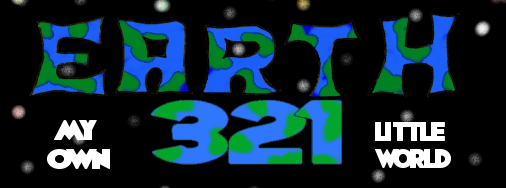Final Crisis
Here we go again; it’s that time of year. DC Comics has just unleashed it’s newst world-changing Mega-Crossover, Final Crisis. For the uninitiated, this is the third in a supposed trilogy of Crises that began in 1985 with Crisis on Infinite Earths and continued in 2005 with the recent Infinite Crisis. Final Crisis is supposedly the bookend to everything the story momentum of the DCU has been building towards over the last few years.
So far, it’s pretty underwhelming though. Now please note that SPOILERS are ahead, so if you plan to read Final Crisis, but haven’t yet, don’t go any further. The issue opens as the author promised it would, with the First Boy, Anthro. In a very cool opening sequence, he is given fire by the self-styled Prometheus, the New God Metron, and uses it to fight off the vandal hordes of the villain who will later be known as Vandal Savage.
The story shifts to the present day, where Dan Turpin, a minor Superman character created by Jack Kirby, finds the dying New God named Orion and watches as he dies. The Guardians of the Universe freak out and cordon off the planet because of a Code 1011, deicide. This proves to be a rather ridiculous elements for reasons entirely beyond the author Grant Morrison’s control
You see, DC has been killing off the New Gods in droves lately, in their year-long weekly series Countdown to Final Crisis as well as an eight-part miniseries know aptly as Death of the New Gods. The characters have been so over saturated that any awe and mystery they should have has been replaced by the tedium of an overused character showing up in places he doesn’t belong. Morrison manages to recapture a little of that, but only if you look at Final Crisis in a vacuum, independent of the failure of a weekly series that counted down to it.
After some good scenes involving Libra, the new big bad of the DCU for the time being, Dark Side (who is, of course, Darkseid himself) and surprisingly the Monitors, one of the most annoying and overused groups throughout Countdown. Morrison manages to make them more interesting in a few pages than Paul Dini and company did in 51 issues.
Of course, it wouldn’t be a big crossover without a hero killed off to show how serious the villain is. This time around the victim is long-time JLA mainstay J’onn J’onnz, the Martian Manhunter. I went in expecting to be outraged and frustrated by the decision, but in the context of the comic it caused a surprising amount of apathy. J’onn hasn’t been used much lately, or at least not used very well. He is off the Justice League, he has a stupid new costume, and his recent mini series was, as far as I’ve heard, mediocre at best.
It sufficiently establishes the stakes of this new world Libra wants to create—a world where Evil wins. I’m not sure how long the death will stick—after all, J’onn is one of the classic JLA mainstays and had a wonderful showing on the Justice League animated series.
Overall, Final Crisis issue 1 just makes me interested and curious about where it’s going. It didn’t turn me off from the whole crossover, but at the same time, it hasn’t grabbed my full attention yet the way Infinite Crisis and Crisis on Infinite Earths did when I first read them. But this is only the first issue, so I suppose whether or not this has all been worth it will be revealed in time.
GameOverthinker 8
In other news, the Game Overthinker video blog that I mentioned in my previous entry has updated again. This time around the topic is race and video games, and the insights by moviebob are very astute, in my opinion.
Gamers by and large are not a racist bunch, at least not anymore so than the rest of the population. When we see that the game is set in Africa, we simply accept it. The fact that the protagonist is a white guy and the zombies this time are all black didn’t occur to most of us until certain parties began complaining that the game was racist. To us, they’re just zombies, no matter what color their skin is.
Of course, there is obviously a potential to be offended if the game is not placed in context. But then, hen has the mass media ever cared about context when it comes to video games? From what they tend to report, Grand Theft Auto is a game about killing hookers and beating up old ladies.

